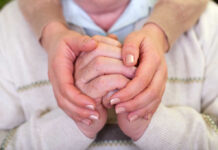
Chest pain can happen for several reasons ranging from heart attack to acid reflux. But do you know that according to a 2012 study, sexual intercourse can also cause chest pain? That’s because the act elevates your heart’s need for oxygen and speeds up your heart’s rate and blood pressure levels. It has been noted that one’s blood pressure and heart rate skyrocket mere seconds before reaching orgasm and can be compared to climbing two flights of stairs.
Therefore, if you experience chest pain during sex, there is a cause for concern. Although such chest pain may not be considered a severe issue, it may be a sign of coronary heart disease.
However, studies dating as far back as 2002 indicate that experiencing heart diseases such as angina —which is a reduced flow of blood to one’s heart— can occur when you’re having sex or when you are engaging in aerobic activities, such as walking, running, cycling, and swimming. So, when you experience chest pains, irregular heartbeat, and even shortness of breath when engaging in sexual intercourse, you need to visit a doctor.
Sex and the Risk of Heart Attack
A 2011 study discovered that experiencing a heart attack within 1-2 hours of sexual intercourse is slight. This is because, for every 10,000 people that have sex once a week, only about 2 to 3 people will suffer from a heart attack. Furthermore, a 2003 study has indicated that coital angina, which happens during or soon after coitus, represents about 5 percent or less of all angina attacks.
Heart Disease in the Bedroom
You should be on the lookout for certain signs of heart disease in your bedroom. Some of them include the following:
- Chest Pain: If you’ve been physically inactive, exerting yourself physically during sex and experiencing chest pain can indicate potential heart problems.
- Erectile Dysfunction (ED): The symptoms of erectile dysfunction and heart diseases are similar. Thus, you should see a doctor if you are suffering from ED.
- Snoring: This can be a sign of underlying heart disease, as it can cut off the normal flow of oxygen in your body during sleep, and this has been linked to heart failure, stroke, and a host of other cardiovascular diseases.
Conclusion
It is safe to consult a doctor whenever you experience some of these signs and symptoms, as they can be signs of an underlying health condition.


















